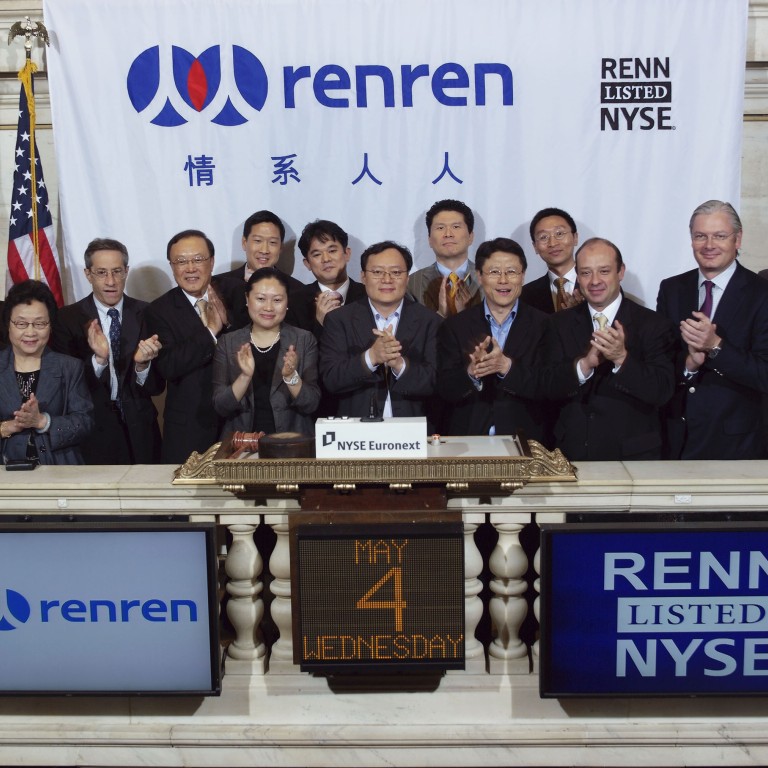
Following likely Renren privatisation, no plans for social network to re-list in China: executive
“Renren, once dubbed the “Facebook of China”, is one of more than 20 Chinese tech firms to receive a proposal to go private this year. The US-listed company was offered US$4.20 per American depositary share, or US$1.40 per ordinary share by Liu and chief executive Joseph Chen.
Other companies who received similar proposals include internet security company Qihoo 360 and social network company Momo.
According to a report by Sina Tech, Liu said Renren does not rule out the possibility of listing domestically completely.
“Our company’s main business and investments are two separate operations, and our main business is making a loss. We are facing a lot of pressure from Tencent,” he said.
“But for Qihoo 360 and the other companies, their main business is doing very well. They are expanding, with a high growth in profit and income. The main motivation for them to return to China is because China’s stock market is now very popular."
He denied claims that the tech companies had consorted to go private together, and said there was no such discussion.
Liu also stated that he thinks the Chinese stock market has a higher price-earnings ratio and market capitalisation and that US investors could be more conservative.
In a recent Barclays report, analysts predicted that privatisation moves by Chinese tech companies “could be related to the higher valuation premiums” to list as A-shares as well as favourable government policies that allow overseas-listed Chinese companies to re-list domestically.
The Chinese stock markets crashed last week and trading has thus far been turbulent, despite cash injections and a reduced lending rate introduced by the Chinese government to calm market jitters.
The Chinese stock markets were among the best-performing markets this year, with the Shanghai Composite Index growing as much as 40 per cent from the beginning of the year prior to the market crash.

